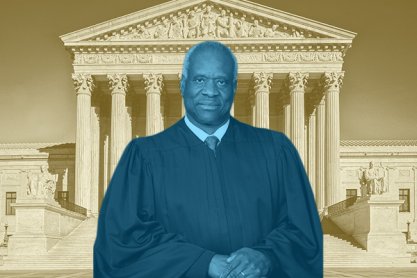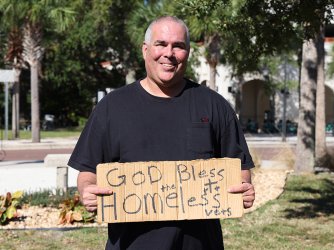Table of Contents
Where were Little Brown’s sensitivity readers? A few thoughts on the Wenner Rolling Stone controversy — First Amendment News 398

I try to be a sensitive guy — really. I try (most of the time) not to offend others — I do try! Of course, I object to sexist, racist, anti-religious, and transphobic stereotypes — honestly! And yes, I wonder why we so often paint a picture of the world confined to the dominant class as if the invaluable work of all those others in life doesn’t matter. So, I was surprised when Little Brown recently published Jann Wenner’s “The Masters: Conversations with Dylan, Lennon, Jagger, Townshend, Garcia, Bono, and Springsteen.” Clearly, Wenner interviewed an amazing lineup of rockstars.

But the interviewees he included were all white dudes. Were there no “masters” who were people of color? What of “masters” like Bob Marley, Aretha Franklin, James Brown, Stevie Wonder, Marvin Gay, Tina Turner, Michael Jackson, and Prince?
Okay, it is his right to ignore them if he chooses . . . and my right to ask: What? No great “masters” among them?
Wenner’s answer: They were not in his “zeitgeist.” Again, that’s his right . . . and it’s mine, also, to ask, “WTF?”
And what of the women? What of Janis Joplin, Carole King, Stevie Nicks, Joni Mitchell, and Madonna, among others? Here is how Wenner’ ventured to explain that omission away in a New York Times interview with David Marchese: “Insofar as the women, just none of them were as articulate enough on this intellectual level.”
Did he really say that? Yes! Of course, an all-too-predictable apology followed, albeit for what might (?) have been just a stupid misstatement. Who among us has not done that? All of which brings me to my biggest beef:
What happened to the sensitivity readers?
Sensitivity readers, those “enlightened” literary police who hunt for perceived offensive content, stereotypes, and bias, are all the rage in the publishing world. One must be careful not to cross the line in any way that might be deemed insensitive. Of course, the line can be a fine one that has real-world censorial effects. As FIRE’s Angel Eduardo has observed:
From Roald Dahl and Ian Fleming to R.L. Stine and Agatha Christie, this trend of editing and rewriting authors’ books — especially without their consent — should alarm us all. While the idea is to prevent offense and promote inclusivity, the reality is that sensitivity reading and the publishers who commission it foster a chilling effect on free speech, a sanitization of art, and a corrosion of our larger cultural discourse.
Little Brown, Wenner’s publisher, is part of the Hachette Book Group, which employs “sensitivity readers.” Did these readers ever lay their editorial eyes on “The Masters”? If so, how did they miss the fact that the musical “masters” are seven white guys? I mean, really, were they asleep at the sensitivity switch? In asking this question I am reminded of a line from Bob Dylan: “You don’t need a weatherman to know which way the wind blows.”
Mindful of Dylan’s poetic insight, any savvy editor should have seen the real problem here even without playing the sensitivity card. I mean, no Black or female “masters”? That is like listing baseball’s greatest without realizing the absence of the likes of Willie Mays, Hank Aaron, and Jackie Robinson. Or listing the greatest modern writers but leaving out female authors such as Harper Lee, Alice Walker, and Maya Angelou.
One possibility is that the sensitivity readers were oblivious to the obvious — namely, the absurdity of Wenner’s operative premise.
Another possibility is that the Sensitivity Police did their job and flagged the WMP (“white male problem”) but Wenner objected and his editors and publisher yielded. Or maybe the Little Brown higher-ups decided to ignore the advice of their sensitivity editors. Who knows?
An alternative (long shot) idea
The punitive response was fast and furious: “Jann Wenner has been removed from the board of directors of the Rock & Roll Hall of Fame Foundation.” Okay, that’s the board’s right.

But what if the board had taken a different, more free speech-friendly approach? What if it invited Wenner to do a widely publicized interview at the Rock & Roll Hall of Fame? And what if it had a robust discussion of this entire matter, giving ample time to critics and Wenner alike to make their case? What if they allowed Wenner to include Bob Guccione Jr., founder of the music magazine Spin, as a possible defense witness — a lively one to be sure! Consider Guccione’s uninhibited words:
There is [an] incessant, monotonous drumbeat of rain falling on a tin roof, the sound of self-prescribed righteousness, an empty, fraudulent, masturbatory sanctimoniousness. I say phony liberals because the self-elected and empowered hall monitors swarming social media like fruit flies are not liberals, they’re the opposite and an affront to the word (literally, look it up in the dictionary) and to the sensibility and courageous tradition.
One more suggestion: What if the Rock & Roll Hall of Fame Foundation went so far as to urge Wenner to consider a sequel with “masters” other than white guys? Long shot? Perhaps. But why not at least try before hitting the “removed” button?
Buy the book?
Meanwhile, Wenner’s book sales have taken a dive. What to do? Assuming culpability, how about firing the sensitivity readers for being unaware of the obvious substantive problem with Wenner’s working premise? Imagine sensitivity readers being insensitive to substance. Now there’s one for the books.
So, when it is all said and done, should one buy the book? Or stand in solidarity with the critics and not purchase “The Masters” as an act of consumer protest? Symbolically “burning” great interviews with seven of the giants of modern-day popular music? Are you crazy?
SCOTUS denies review in case seeking to overturn New York Times v. Sullivan
- Amy Howe, “Court won’t hear case seeking to overturn New York Times v. Sullivan,” SCOTUSblog (Oct. 10)
The Supreme Court did not add any new cases to its docket on Tuesday morning. In orders from the justices’ private conference last week, the justices denied review in approximately 180 cases — including one asking the court to overrule one of its landmark decisions on freedom of the press.
In Blankenship v. NBCUniversal, the justices once again turned down, with a concurring opinion by Justice Clarence Thomas, a request to reconsider the court’s 1964 decision in New York Times v. Sullivan, which requires a public figure to prove that a defamatory statement was made ‘actual malice’ — that is, “with knowledge that it was false or with reckless disregard of whether it was false or not.”
[ . . . ]
Blankenship came to the Supreme Court earlier this year, asking the justices to overturn their decision in Sullivan. The justices turned him down on Tuesday in a one-sentence order without explanation, but Thomas penned a brief concurring opinion. He argued that although Blankenship’s case might not be an appropriate one in which to consider the question because West Virginia law would also impose an actual-malice standard to his claims, the court should take up the question soon in a different case.
Excerpts from Justice Thomas’ concurrence

Justice Clarence Thomas, concurring in the denial of certiorari:
The common law of libel at the time the First and Fourteenth Amendments were ratified did not require public fig- ures to satisfy any kind of heightened liability standard as a condition of recovering damages. McKee v. Cosby, 586 U. S. ___, ___ (2019) (THOMAS, J., concurring in denial of certiorari) (slip op., at 6).
To be sure, the law was not static; “[i]n the first decades after the adoption of the Constitu- tion,” the rule that “truth or good motives was no defense” to libel “was changed by judicial decision, statute or constitution in most States.” Beauharnais v. Illinois, 343 U. S. 250, 254 (1952). But from the founding until 1964, the law of defamation was “almost exclusively the business of state courts and legislatures.” Gertz v. Robert Welch, Inc., 418 U. S. 323, 369–370 (1974) (White, J., dissenting).
The Court usurped control over libel law and imposed its own elevated standard in New York Times Co. v. Sullivan, 376 U. S. 254 (1964). It decreed that the Constitution required “a federal rule that prohibits a public official from recovering damages for a defamatory falsehood relating to his official conduct unless he proves that the statement was made with ‘actual malice’—that is, with knowledge that it was false or with reckless disregard of whether it was false or not.” Id., at 279–280. The Court did not base this “actual malice” rule in the original meaning of the First Amendment. It limited its analysis of the historical record to a loose inference from opposition surrounding the Sedition Act of 1798, see McKee, 586 U. S. in ___, ___, (opinion of THOMAS, J.) (slip op., at 12–13), and primarily justified its constitutional rule by noting that 20th century state-court decisions and “the consensus of scholarly opinion apparently favor[ed] the rule,” New York Times, 376 U. S., at 280, and n. 20.
I continue to adhere to my view that we should reconsider the actual-malice standard. See Counterman v. Colorado, 600 U. S. 66, 105 (2023) (dissenting opinion); Coral Ridge Ministries Media, Inc. v. Southern Poverty Law Center, 597 U. S. ___, ___ (2022) (same) (slip op., at 3); Berisha v. Law- son, 594 U. S. ___, ___ (2021) (same) (slip op., at 3); McKee, 586 U. S., at ___ (opinion of THOMAS, J.) (slip op., at 14). “New York Times and the Court’s decisions extending it were policy-driven decisions masquerading as constitu- tional law.” Id., at ___ (same) (slip op., at 2). The decisions have “no relation to the text, history, or structure of the Constitution.” Tah v. Global Witness Publishing, Inc., 991 F. 3d 231, 251 (CADC 2021) (Silberman, J., dissenting in part). And the actual-malice standard comes at a heavy cost, allowing media organizations and interest groups “to cast false aspersions on public figures with near impunity.” Id., at 254. The Court cannot justify continuing to impose a rule of its own creation when it has not “even inquired whether the First or Fourteenth Amendment, as originally understood, encompasses an actual-malice standard.” Coral Ridge Ministries, 597 U.S., at ___ (opinion of THOMAS, J.)
50-plus media orgs call on DOJ to explain raid on journalist
- Susanna Granieri, “Press Freedom Advocates Urge DOJ to Explain Raid on Journalist Tim Burke,” First Amendment Watch (Oct. 4)
Press freedom advocates sent a letter to Attorney General Merrick Garland on Wednesday calling for “greater transparency” from the Department of Justice regarding its raid of freelance journalist Tim Burke’s home.
FBI agents searched Burke’s home in May and seized several of Burke’s electronic devices used for newsgathering as part of an investigation into alleged computer crimes. But the affidavit used by the DOJ to obtain the search warrant remains sealed, leaving the legal justification for the raid unclear and raising concerns that it could undermine long-standing press freedom protections.
“We implore the DOJ to release adequate information so that the public can understand the legal basis behind the seizure of Burke’s newsgathering materials and the processes that were followed to avoid undue interference with press freedom,” reads the letter, which was signed by more than 50 media organizations and press freedom groups, headlined by the Freedom of the Press Foundation, the First Amendment Foundation and the American Civil Liberties Union.
The press advocates expressed concern, especially in light of the recent raid on a small newspaper in Marion County, Kansas, over allegations of computer crimes, that the lack of clarity could chill lawful reporting.
Volokh leaves UCLA and moves to Hoover Institution

- Eugene Volokh, “My Move to the Hoover Institution,” The Volokh Conspiracy (Sept. 19)
Next year, I'll become a Professor of Law Emeritus at UCLA School of Law, after 30 years of teaching, and move (effective July 1, 2024) to the Hoover Institution at Stanford, where I'll be a Senior Fellow — essentially like a permanent, tenured research faculty position, but with no teaching obligations.
Hoover is a think tank on the Stanford campus; it is a unit of Stanford University, but has a great deal of independence, as well as its own Board of Overseers (and its own endowment). Its current director is Condoleezza Rice, who is a Stanford professor and former Stanford provost, National Security Advisor, and Secretary of State. Past Senior Fellows have included the Nobel-winning economists Milton Friedman and Gary Becker, as well as George Shultz, who had been a professor at MIT and Chicago before serving as Secretary of Labor, of the Treasury, and of State. Hoover Senior Fellows today include, among others, many leading economists, historians, political scientists, national security scholars, and other academics, including law professors Richard Epstein, Jack Goldsmith, Daniel Kessler, and Michael McConnell.
Calls for age verification laws for adult content sites continue
- Angele Latham, “‘Backdoor censorship’: Could age verification on adult sites violate the First Amendment?” The Tennessean (Oct. 9)
Tennessee lawmakers are considering pushing for age verification requirements to view adult content online — a move that is raising questions regarding what mature content, and the right to access it, the First Amendment protects.
Republican lawmakers for their next regular session in January have indicated they may consider legislation that would require age verification — likely in the form of a state ID card — for adult websites in an effort to shield children from online sexual content.
The bill follows behind several states that have recently enacted similar measures, including Arkansas, Mississippi, Texas, Utah and Louisiana.
Tennessee House Republican Caucus spokesperson Jennifer Easton in an email this month said the plan is one of “several ideas in ongoing discussions by House Republicans about what can be done legislatively to protect the innocence and safety of children.”
Response: Unconstitutional or noncompliance
- Adi Robertson, “Porn age verification law is unconstitutional, says judge,” The Verge (Aug. 31)
- Meghan McIntyre, “Many pornography websites aren’t complying with new Va. age verification law,” Virginia Mercury (Aug. 23)
Related
- Marc Novicoff, “A Simple Law Is Doing the Impossible. It’s Making the Online Porn Industry Retreat,” Politico Magazine (Aug. 8)
On June 15, 2022, a freshman legislator in Louisiana’s House of Representatives accomplished something no other lawmaker or activist in the country could claim: She passed a law that is changing the online porn industry.
If you think this was the result of a bitter culture war battle, think again.
“Pornography is creating a public health crisis and having a corroding influence on minors,” asserts the bill that state Rep. Laurie Schlegel introduced. Almost no one in the capitol in Baton Rouge disputes the statement; the bill sailed through the Louisiana House 96-1 and the State Senate 34-0. The bill holds pornography websites liable unless the websites “perform reasonable age verification methods” — in short, requiring users to show government ID to prove they are 18 or older. Democratic Gov. John Bel Edwards, no fan of the legislature’s Republican supermajority, signed the bill about a week after it arrived on his desk.
“I promise you he has no qualms about vetoing our bills,” Schlegel told me. In fact, earlier this summer, the governor had unsuccessfully vetoed a bill banning puberty blockers, hormone therapy and elective surgery for minors, calling it “so blatantly defective on so many levels.”
Though the first of its kind, Louisiana’s age-verification bill was not the last. Nearly identical bills have passed in six other states — Arkansas, Montana, Mississippi, Utah, Virginia and Texas — by similarly lopsided margins. In Utah and Arkansas, the bills passed unanimously. The laws were passed by overwhelming margins in legislatures controlled by both parties and signed into law by Democratic and Republican governors alike. In just over a year, age-verification laws have become perhaps the most bipartisan policy in the country, and they are creating havoc in a porn industry that many had considered all but impossible to actually regulate.
Trans cake case continues in Colorado

- “Colorado High Court to Hear Case Against Christian Baker Who Refused to Make Gender Transition Cake,” First Amendment Watch (Oct. 3)
On the heels of a U.S. Supreme Court victory this summer for a graphic artist who didn’t want to design wedding websites for same-sex couples, Colorado’s highest court said Tuesday it will now hear the case of a Christian baker who refused to make a cake celebrating a gender transition.
The announcement by the Colorado Supreme Court is the latest development in the yearslong legal saga involving Jack Phillips and LGBTQ+ rights.
Phillips won a partial victory before the U.S. Supreme Court in 2018 after refusing to make a gay couple’s wedding cake but was later sued by Autumn Scardina, a transgender woman, who asked his suburban Denver bakery to make a pink cake with blue frosting for her birthday. It refused after Scardina explained it would celebrate her transition from male to female.
The justices didn’t explain how or why they made the determination. It was announced in a long list of decisions about which cases they will hear and reject.
The case involves the state’s anti-discrimination law that makes it illegal to refuse to provide services to people based on protected characteristics like race, religion or sexual orientation. The key issue in the case is whether the cakes Phillips creates are a form of speech and whether forcing him to make a cake with a message he does not support is a violation of his First Amendment right to free speech.
Earlier this year, the Colorado Court of Appeals sided with Scardina in the case, ruling that the cake was not a form of speech. It also found that the anti-discrimination law that makes it illegal to refuse to provide services to people based on protected characteristics like race, religion or sexual orientation does not violate business owners’ right to practice or express their religion.
Related
- Eugene Volokh, “Colorado Supreme Court Will Hear Latest Masterpiece Cakeshop Case, Involving Pink-and-Blue Cake for Gender Transition,” The Volokh Conspiracy (Oct. 9)
Forthcoming book on book bans in Texas
- Michael Hixenbaugh, “They Came for the Schools: One Town's Fight Over Race and Identity, and the New War for America's Classrooms,” HarperCollins (Forthcoming, May 14, 2024)

The urgent, revelatory story of how a school board win for the conservative right in one Texas suburb inspired a Christian nationalist campaign now threatening to undermine public education in America—from an NBC investigative reporter and co-creator of the Peabody Award–winning and Pulitzer Prize finalist Southlake podcast.
Award-winning journalist Mike Hixenbaugh delivers the immersive and eye-opening story of Southlake, Texas, a district that seemed to offer everything parents would want for their children—small classes, dedicated teachers, financial resources, a track record of academic success, and school spirit in abundance. All this, until a series of racist incidents became public, a plan to promote inclusiveness was proposed in response—and a coordinated, well-funded conservative backlash erupted, lighting the fire of a national movement on the verge of changing the face of public schools across the country.
They Came for the Schools pulls back the curtain on the powerful forces driving this crusade to ban books, rewrite curricula, limit rights for minority and LGBTQ students—and, most importantly, to win what Hixenbaugh’s deeply informed reporting convinces is the holy grail among those seeking to impose biblical values on American society: school privatization, one school board and one legal battle at a time.
They Came for the Schools delivers an essential take on Donald Trump and Ron DeSantis, as they demean public schools and teachers and boost the Christian right’s vision. Hixenbaugh brings to light fascinating connections between this political and cultural moment and past fundamentalist campaigns to censor classroom lessons. Finally, They Came for the Schools traces the rise of a new resistance movement led by a diverse coalition of student activists, fed-up educators, and parents who are beginning to win select battles of their own: a blueprint, they hope, for gaining inclusive and civil schools for all.

Coming this December: ‘Companion to Freedom of Expression and Censorship’
- John Steel and Julian Petley, eds., “The Routledge Companion to Freedom of Expression and Censorship,” Routledge (Dec. 6)
The Routledge Companion to Freedom of Expression and Censorship offers a thorough exploration of the debates surrounding this contentious topic, considering the importance placed upon it in democratic societies and the reasons frequently proposed for limiting and constraining it.
This volume addresses the various historical, philosophical, political and cultural parameters of censorship and freedom of expression as well as current debates involving technology, journalism and media regulation. Geographically, temporally and culturally diverse accounts of censorship and freedom of expression are discussed through a broad range of perspectives and case studies. This Companion covers core principles and concerns in addition to more specialist and controversial debates, including those surrounding hate speech, holocaust denial, pornography and so-called ‘cancel culture’. The collection pays particular attention to the role of the media in both facilitating and suppressing freedom of expression.
Comprehensive, original and timely, The Routledge Companion to Freedom of Expression and Censorship is a go-to resource for scholars and advanced students of media, communication and journalism studies.
Related
- Gergely Gosztonyi, “Censorship from Plato to Social Media: The Complexity of Social Media’s Content Regulation and Moderation Practices,” Springer (Nov. 30)
Forthcoming scholarly article on children’s free speech rights and more
- Anne C. Dailey, “In Loco Reipublicae,” Yale Law Journal (Forthcoming, 2023)

The Supreme Court has long held that children enjoy a range of constitutional rights and has emphasized the critical importance of many of these rights to children’s development as democratic citizens. At the same time, the Court has been resolute in its protection of parents’ near-absolute authority to control th upbringing of children. Indeed, the Supreme Court’s steadfast commitment to broad parental rights under the Due Process Clause effectively diminishes, if not outright nullifies, the Court’s stated protections for children as rights-bearing citizens. The stakes for children have only heightened as parents increasingly seek to exercise their authority to shield their children from certain ideas, such as ideas about racial injustice or gender inequality, that are essential to their development as full citizens in a pluralistic, democratic polity.
This Article offers a new framework for children in constitutional law, one that elevates children’s rights as developing citizens by recognizing parental duties to respect those citizenship rights. The in loco reipublicae framework positions parents as standing in place of the state with constitutional duties to ensure children’s acquisition of the knowledge and skills needed for citizenship in our democratic polity. Parental in loco reipublicae duties are rooted in a potent constitutional mixture of parents’ unique custodial authority over children and children’s own citizenship rights. While children’s free-speech rights are not the only constitutional rights that protect children’s citizenship interests, they are a powerful exemplar of parental duties to ensure children’s access to ideas outside the home. In articulating a theory of children’s citizenship rights and parents’ corresponding duties, the in loco reipublicae framework aims to fortify the parent-child relationship while at the same time respecting children as developing democratic citizens in their own right.
Libel lawsuit against OpenAI returns to Georgia court
- Eugene Volokh, “‘Large Libel Model’ Lawsuit Against OpenAI Headed Back to Georgia Court,” The Volokh Conspiracy (Oct. 9)
In Walters v. OpenAI, LLC, plaintiff sued OpenAI after it hallucinated false statements about him (in response to a query by a third party). Plaintiff sued in Georgia state court, and OpenAI removed the case to federal court, on the theory that it was a lawsuit between citizens of different states and involved at least $75,000 in potential damages (so-called "diversity jurisdiction"). But OpenAI, LLC is a "limited liability company," and under federal law an LLC is the citizen of all the states where its members (i.e., co-owners) are citizens; and if the members are LLCs, then the LLC is the citizen of all the states where its members' members are citizens, and so on, indefinitely.
OpenAI therefore had to file a declaration discussing the citizenship of its members, which it did. But Judge Michael L. Brown (N.D. Ga.) concluded that wasn’t enough.
YouTube interview with Mchangama on free speech
- Gad Saad, “My Chat with Jacob Mchangama, Expert on Free Speech and Human Rights Activist,” The Saad Truth (Oct. 9)

More in the news
- C.J. Ciaramella, “Performing Charity Is a First Amendment Right,” Reason (Oct. 10)
- Aaron Corpora and Talia Barnes, “Hamline president declares academic freedom controversy over, but does little to allay faculty’s fears,” FIRE (Oct. 9)
- Jonathan Mattise, “Appeals panel won’t revive lawsuit against Tenn. ban on giving out mail-voting form,” Free Speech Center (Oct. 9)
- Jacob Sullum, “Does the First Amendment Apply to Speech on Social Media Platforms?” New York Sun (Oct. 7)
- “Lawmakers Question Meta and X Over Lack of Rules Against AI-Generated Political Deepfakes,” First Amendment Watch (Oct. 5)
- Daniel Ortner, “Broad coalition supports FIRE’s challenge to New York’s online hate speech law before Second Circuit,” FIRE (Oct. 5)
- Suzanne Eckes, “Where the Supreme Court stands on banning books,” Free Speech Center (Oct. 4)
- James Taranto, “Justice Alito’s First Amendment,” Wall Street Journal (Oct. 1)
2023-2024 SCOTUS term: Free expression and related cases
Review granted
Pending petitions
- Porter v. Board of Trustees of North Carolina State University
- Miller v. USA
- Alaska v. Alaska State Employees Association
- Speech First, Inc. v. Sands
- Gonzalez v. Trevino
- Stein v. People for the Ethical Treatment of Animals, Inc., et al.
State action
- Lindke v. Freed (to be argued Oct. 31)
Review denied
- Blankenship v. NBCUniversal, LLC
- Center for Medical Progress v. National Abortion Federation
- Frese v. Formella
- Mazo v. Way
Previous FAN
FAN 397: “Was John Milton naïve? Is counterspeech a real remedy or a First Amendment fantasy?”
This article is part of First Amendment News, an editorially independent publication edited by Ronald K. L. Collins and hosted by FIRE as part of our mission to educate the public about First Amendment issues. The opinions expressed are those of the article’s author(s) and may not reflect the opinions of FIRE or of Mr. Collins.
Recent Articles
FIRE’s award-winning Newsdesk covers the free speech news you need to stay informed.


FIRE Statement: X Corp's lawsuit and Texas's investigation into Media Matters for America are deeply misguided

Anonymous speech is as American as apple pie


